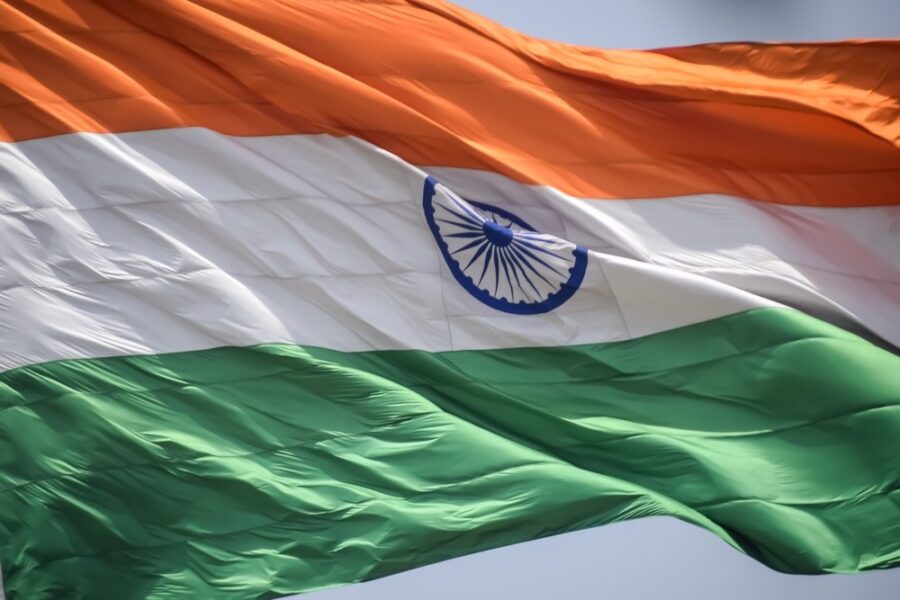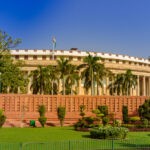Indian Ministry of Electronics and Information Technology publishes draft rules for online gaming bill

Indian government agency, the Ministry of Electronics and Information Technology, has published draft rules for the country’s Promotion and Regulation of Online Gaming bill.
The draft details which gaming platforms will be considered legal, outlines the powers held by the Online Gaming Authority of India, and lists possible penalties for any violations.
According to Moneycontrol, the Ministry of Electronics and Information Technology has asked for public feedback on the draft rules, which will be open until the end of October.
Under the online gaming bill, the majority of online gaming platforms, which include the likes of card games, poker, and fantasy sports, are banned. People who either interact with or promote these platforms can face jail time.
The bill aims to provide a clearer distinction between gaming and gambling by banning real-money games and instead supporting the likes of e-sports and video games as entertainment.
It was introduced by Union IT Minister Ashwini Vaishnaw on August 20 and passed through both houses of parliament the following day, before receiving presidential assent on August 22.
Indian Prime Minister Narendra Modi described the move as a “major decision,” hoping that it will strengthen India’s position in the gaming industry by removing itself from gambling.
Charlotte Capewell brings her passion for storytelling and expertise in writing, researching, and the gambling industry to every article she writes. Her specialties include the US gambling industry, regulator legislation, igaming, and more.
Verticals:
Sectors:
Topics:
Dig Deeper
The Backstory
Why this debate is intensifying now
Across Asia, governments are moving to draw a sharper line between entertainment and gambling as money flows into offshore apps, tax authorities tighten scrutiny and politicians respond to youth harm. In India, a sweeping draft rulebook for the Promotion and Regulation of Online Gaming bill sets the tone by defining what counts as permissible play and what crosses into gambling. The Ministry of Electronics and Information Technology laid out which platforms could operate, the powers of a new Online Gaming Authority of India and penalties for violations, while seeking public feedback through October. The bill, introduced Aug. 20 and enacted by Aug. 22, bans most real-money games such as card games, poker and fantasy sports, and backs e-sports and video games as entertainment. Prime Minister Narendra Modi framed it as a “major decision” to lift gaming while distancing from gambling, according to the ministry’s draft and timeline.
The push reflects converging pressures: state-level bans that are uneven, offshore operators that evade taxes and compliance regimes, and a wave of social media promotion that has normalized betting. Regulators and lawmakers are now trying to reconcile consumer protection with economic opportunities tied to arenas, resorts and digital ecosystems.
India redraws the boundary between play and pay
New Delhi’s approach hinges on classifying activities and channeling growth into regulated entertainment. The online gaming bill’s draft rules seek to distinguish skill-based e-sports from real-money wagering, backed by enforcement teeth that target those who operate or promote illegal platforms. The central government also faces a constitutional constraint: gambling falls under state authority. That tension surfaced in a heated Lok Sabha debate where Information Technology Minister Ashwini Vaishnaw told MPs the center had blocked 1,410 sites but reiterated that states control bans and regulation. The exchange, which followed questions about addiction risks and algorithms, underscored the federal limits even as the national apparatus increases pressure on offshore actors. Read more in coverage of the parliamentary debate on online gambling risks.
States are not waiting. Telangana plans to form a Special Investigation Team and stiffen penalties after a 2017 ban failed to stem growth in online betting. Chief Minister A Revanth Reddy said enforcement needed to move beyond local police stations and target promoters, including influencers tied to offshore operators during cricket season. The initiative, and a call to raise sentences beyond two years, reflects a broader shift toward coordinated, tech-enabled crackdowns. Details are in Telangana’s plan for a Special Investigation Team.
Compliance squeeze: AML and enforcement converge
The Ministry of Finance is preparing to bring online real-money gambling firms under the 2002 Prevention of Money Laundering Act as reporting entities, a change that would force platforms to implement rigorous know-your-customer checks, keep detailed records and flag suspicious activity to the Financial Intelligence Unit – India. The move would align gambling operators with banks and other financial intermediaries and cap what officials describe as large volumes of unaccounted funds flowing through apps. It also would close a gap created by the fragmented legal status of online gambling across states. An overview of the proposal is available in plans to strengthen AML reporting rules for gambling firms.
Enforcement has been steadily intensifying. India’s Directorate General of Goods and Services Tax Intelligence recently touted bulk bank account freezes tied to offshore betting. Parliamentarians from Punjab, Maharashtra and Tamil Nadu have pressed the center for stronger action, citing harms to minors and compulsive behaviors. Vaishnaw’s answer—federal lines must be respected—signals that New Delhi’s near-term emphasis will be on classification, payments oversight and national security tools, while states expand police powers and penalties.
Thailand doubles down on bricks, not clicks
While India fine-tunes digital boundaries, Thailand is focusing on destination scale. Bangkok confirmed that igaming will not be included in its Entertainment Complex Bill, even as it accelerates plans for integrated resorts that bundle casinos with arenas, hotels and retail. At a June briefing, the government said online gambling remains off the table for now, though officials did not rule it out in future legislation. The bill is designed to fast-track multi-billion-dollar projects within the current parliamentary term to avoid lapse, with a minimum investment of THB100 billion per complex and a goal of lifting average visitor spend to as much as THB22,000. The government’s stance and stakeholder outreach are outlined in its decision to exclude igaming from the Entertainment Complex Bill.
The policy is part of a broader bid to upgrade events infrastructure and tourism receipts. Officials and operators discussed investment visions at the Thai Entertainment Complex Roundtable organized by Inside Asian Gaming, which has reported on plans to incorporate world-class arenas into resort designs. For detail on that strategy, see Inside Asian Gaming’s report on how integrated resorts could transform Thailand’s concert and sports scene.
Indonesia tightens the net on access and payments
Indonesia is pushing a prevention-first framework that enlists telecom operators and fintech firms as frontline gatekeepers. New rules will assign responsibilities across police agencies, internet service providers and digital payments companies, with tougher sanctions for violators and stricter child protection measures. The Communications Ministry signaled it expects ISPs to deploy stronger monitoring to block gambling content and transactions, citing thousands of minors found gambling online. Lawmakers are also pressing for harsher penalties for community leaders or officials who facilitate gambling, aiming to deter complicity. The regulatory direction is detailed in Indonesia’s plan for stronger online gambling rules.
The move reflects a lesson seen across the region: access control and payments oversight are pivotal. As platforms pivot domains and apps, authorities are leaning on network-level blocks, KYC obligations and transaction surveillance to make illegal betting harder and riskier, especially for underage users.
What ties these threads together
The region’s policy arc links three goals: curb harm, protect tax bases and capture tourism upside. India is attempting to standardize definitions and compliance without trampling state powers, while tightening AML rules to raise the cost of operating in gray areas. Thailand is courting large-capital resort development and live events while keeping online gambling at bay, betting that destination spending outweighs the risks tied to ubiquitous mobile wagering. Indonesia is anchoring enforcement in infrastructure and payments, assigning duties to ISPs and fintechs to push compliance into daily digital life.
For operators, the map is narrowing. Real-money platforms face higher KYC and reporting burdens if they want to stay connected to domestic payments rails in India, more aggressive policing in Indian states such as Telangana and a firm exclusion from Thai’s immediate resort play. For investors, the opportunity is shifting to regulated entertainment—e-sports, arenas, integrated resorts—backed by governance that makes clear what will and will not be tolerated. For consumers, especially minors, the implication is clearer guardrails and more friction for risky products.
The stakes are rising as governments coordinate across ministries, enlist private-sector intermediaries and test how far they can go without pushing activity further underground. The next inflection points to watch: India’s finalization of its draft rules and AML scope, Thailand’s pace on enabling legislation for integrated resorts and Indonesia’s rollout of ISP and fintech obligations with real penalty teeth.








